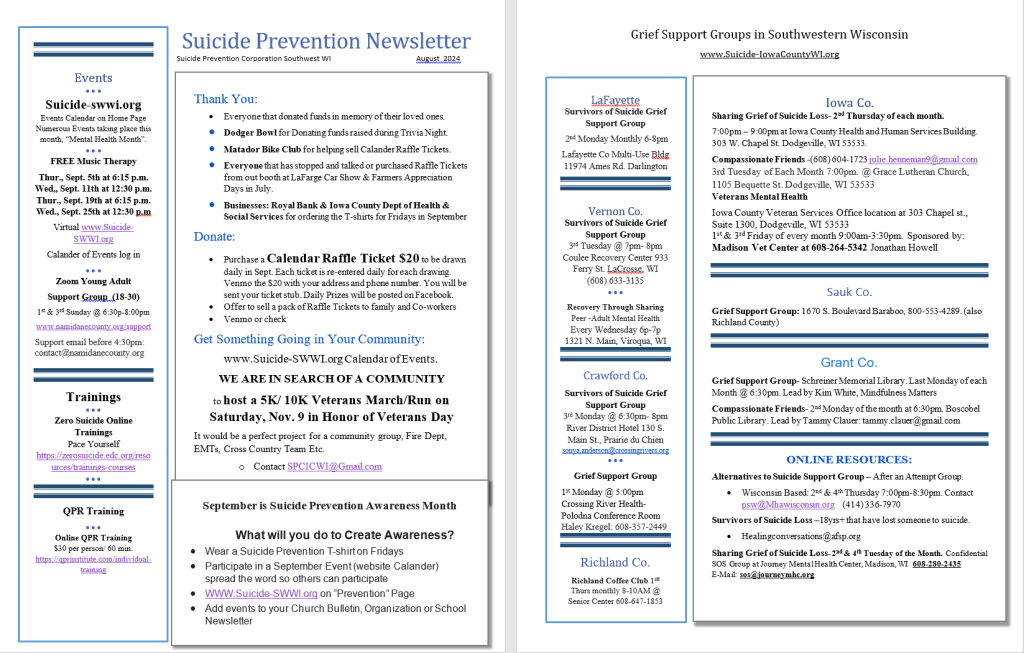


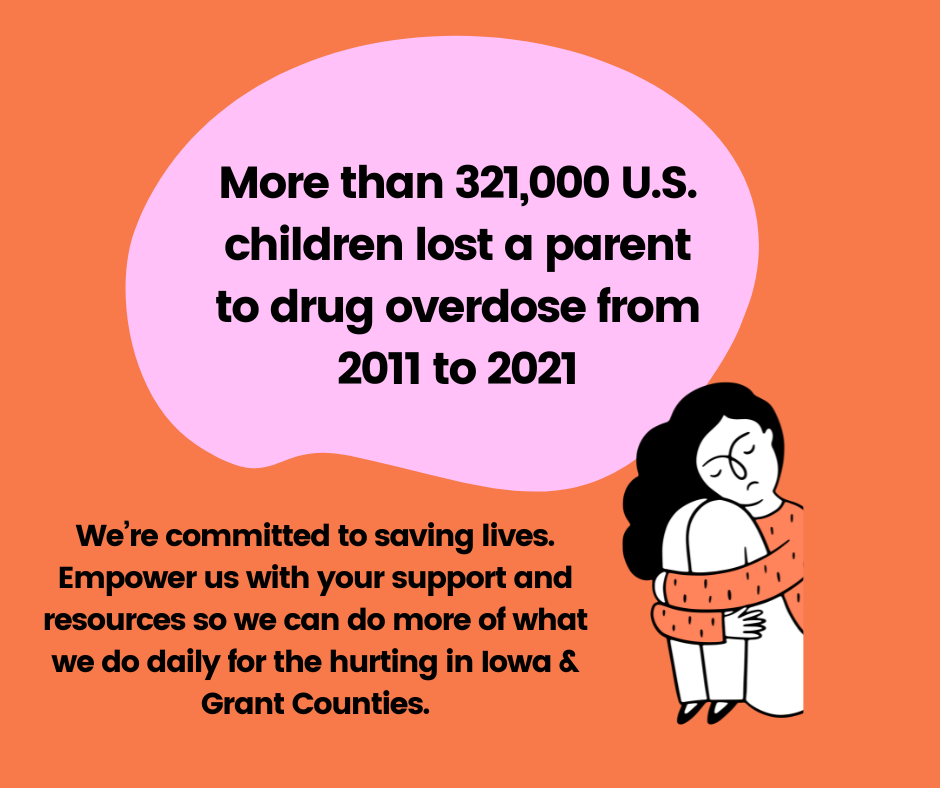
Our amazing Prevention Specialist recently shared this gut wrenching statistic with our staff. This is why we value our tremendous staff so deeply and constantly advocate for them and those they serve. They are on the front lines of saving lives in Grant and Iowa Counties.
“An estimated 321,566 children in the United States lost a parent to drug overdose from 2011 to 2021, according to a study published in JAMA Psychiatry. The rate of children who experienced this loss more than doubled during this period, from approximately 27 to 63 children per 100,000. The study was a collaborative effort led by researchers at the National Institutes of Health’s (NIH) National Institute on Drug Abuse (NIDA), the Substance Abuse and Mental Health Services Administration (SAMHSA), and the Centers for Disease Control and Prevention (CDC).”

Supporting a child who may have experienced trauma requires patience, understanding, and a supportive environment. Here are some ways parents can help:
1. Create a Safe Environment: Ensure the child feels physically and emotionally safe at home. This may involve removing triggers or reminders of the trauma and providing a calm and consistent routine.
2. Open Communication: Encourage open and honest communication with your child. Let them know that it’s okay to talk about their feelings and experiences, but don’t pressure them to share before they’re ready.
3. Validate Feelings: Validate your child’s feelings and let them know that whatever they’re feeling is okay. Avoid dismissing or minimizing their emotions.
4. Provide Reassurance: Offer reassurance and comfort to your child. Let them know that you are there to support them and that they are not alone.
5. Seek Professional Help: If you’re concerned about your child, their attempts to cope are ineffective or unhealthy, their symptoms are impacting their ability to function in multiple environments or last longer than 4-6 weeks, consider seeking help from a professional therapist or counselor who specializes in working with children who have experienced trauma. Professional support can provide additional tools and strategies for coping and healing. When in doubt reach out to a professional (Case Manager, Mental Health or Medical Provider- Family Doctor, Therapist, Psychologist, Psychiatrist) or the Crisis Hotline- 988 or 1-800-362-5717 (Grant and Iowa Counties) for support, guidance, or a consult.
6. Maintain Stability: Try to maintain a sense of stability and routine in your child’s life. Predictability can help them feel more secure and in control.
7. Encourage Healthy Coping Mechanisms: Teach your child healthy coping mechanisms such as deep breathing, mindfulness, or engaging in activities they enjoy.
8. Model Healthy Coping: Be a positive role model for your child by demonstrating healthy coping strategies and managing your own stress in constructive ways.
9. Encourage Self-Expression: Encourage your child to express themselves creatively through activities like drawing, writing, or playing music. This can help them process their emotions in a safe and non-verbal way.
10. Sleep: Sufficient sleep is essential for children to process emotions and consolidate memories, including those related to traumatic experiences. During sleep, the brain undergoes processes that help regulate emotions and consolidate memories, which can be especially important for children dealing with trauma. Lack of sleep can exacerbate stress and emotional instability, making it more difficult for children to cope with traumatic experiences. Establishing a regular sleep schedule and ensuring children have a comfortable sleep environment can support their emotional resilience.
11. Hydration: Hydration is critical for overall health and brain function. Dehydration can affect mood, cognitive function, and physical well-being, which can exacerbate the effects of trauma on children. Drinking enough water helps maintain proper brain function, including memory and concentration, which are important for processing and coping with traumatic experiences. Encouraging children to drink water regularly throughout the day can support their physical and emotional resilience.
12. Nutrition: Proper nutrition is essential for children’s physical and mental development. Nutrient-rich foods provide the energy and nutrients needed for optimal brain function, mood regulation, and stress management. Eating a balanced diet that includes a variety of fruits, vegetables, whole grains, lean proteins, and healthy fats can support children’s overall well-being and resilience in the face of trauma.
13. Be Patient: Healing from trauma takes time, so be patient with your child and yourself. Celebrate small victories and progress along the way.
Remember that every child is different, and what works for one may not work for another. It’s important to be flexible and responsive to your child’s individual needs.
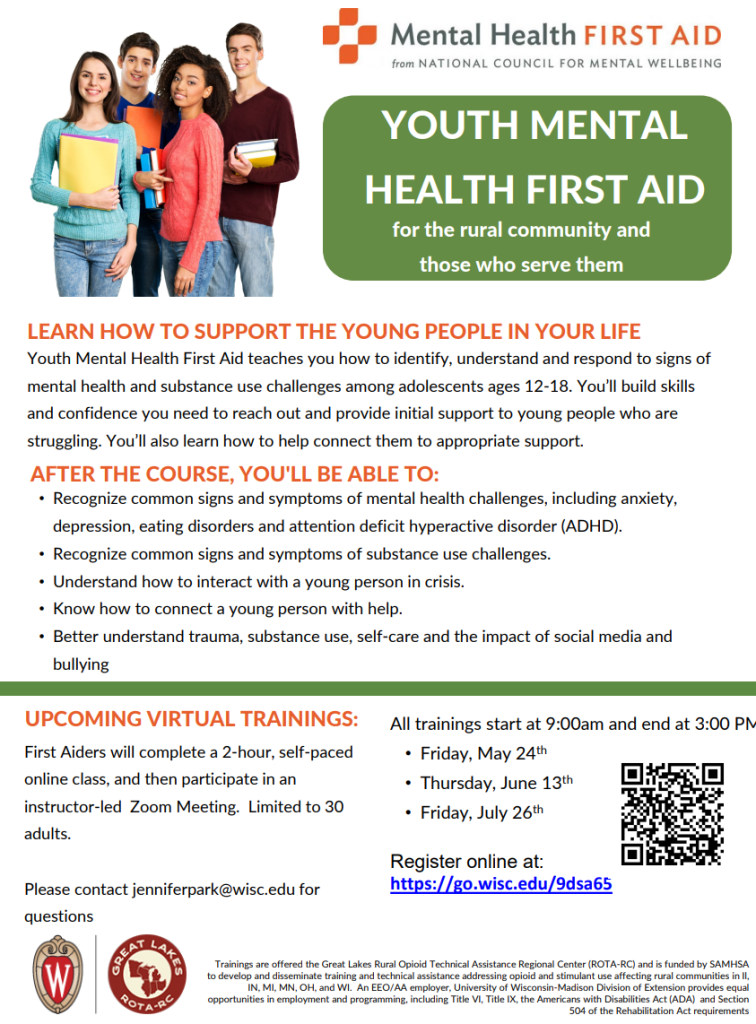
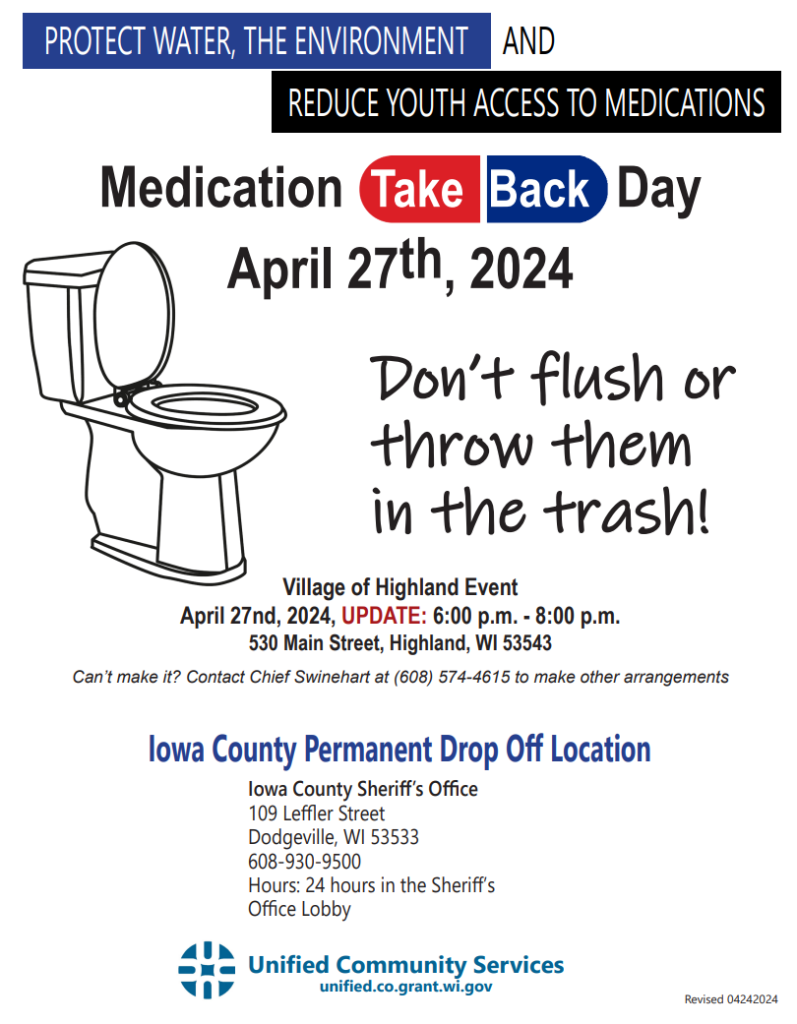
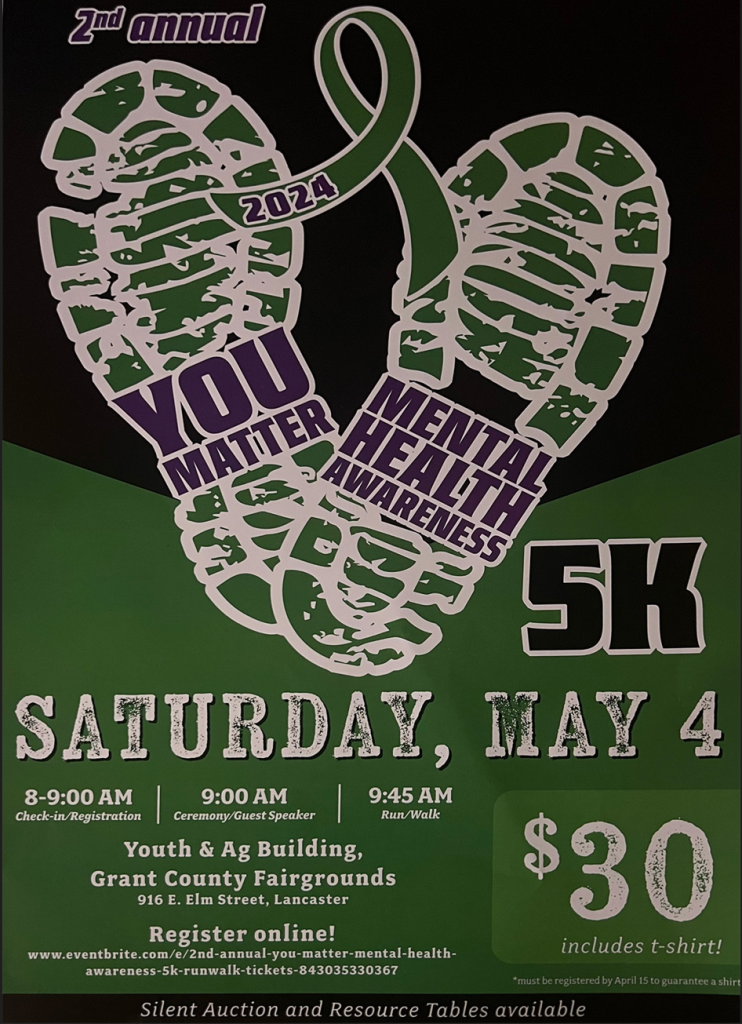

If you’re ready to be a member of a team that shows up for each other, that takes the time to listen to each others’ needs and volunteer to help balance each others’ workloads, who have healthy boundaries but also aren’t afraid to be vulnerable, who welcome authenticity while inspiring each other to be their very best, who desire being held accountable to invest in and sustain your own health which contributes to longevity and consistency of service, who desire passion and purpose in addition to a paycheck and benefits, then you’re ready for Unified Community Services.
We’re looking to hire outpatient behavioral health clinicians to become part of an already phenomenal team that does heroic and honorable work in Iowa and Grant County.
We’re looking to give opportunities to interns of high integrity who want to immerse themselves in the service of clients who many health systems refuse to serve, who want to apply your knowledge to gain experience and expertise in real world challenges, and who want to build a foundation of professional excellence you can take pride in.
Our success is your fulfillment.
Your flourishing is our clients thriving.
We’re ready to add to our team. Are you ready to be part of it?
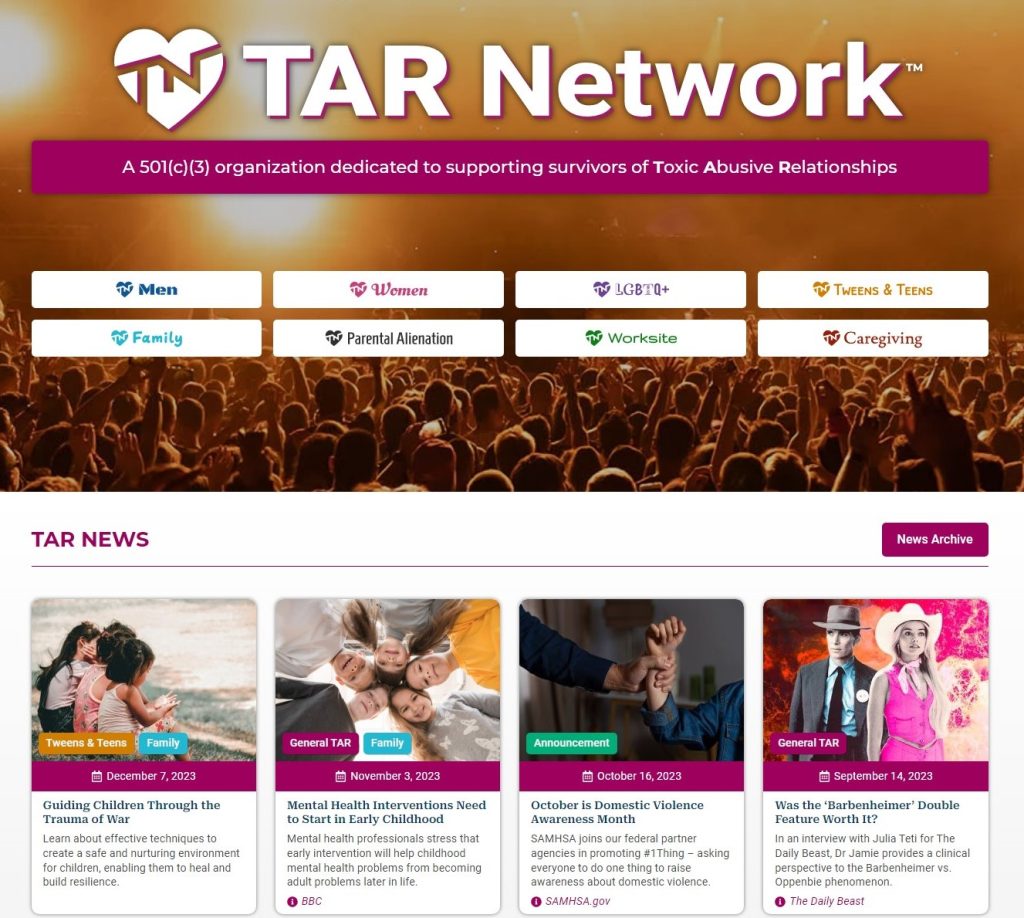
Learn more here.

Tired of the New Year’s Resolution game that doesn’t work? Want lasting change when it comes to alcohol and substance use? Reach out today! We can help!
Looking for mental health and substance use awareness training for your organization’s leadership team? We can help!